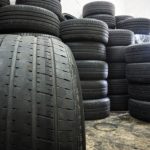How Often Should You Replace Your Brakes?
There’s so much to keep track of when you’re trying to maintain your cherished car or truck. In addition to everyday chores like keeping gas in the tank and keeping it clean, there’s a huge assortment of other things to keep in mind. Do you have enough oil in the car (and when was it last changed)? Are your tires prepared to get you through the next season? Is there enough freon in your engine to keep the air cold?
In that long list of tasks you need to accomplish to keep your car running at peak efficiency, it can be easy to overlook the quality of your brakes. After all, when you press the pedal, if the vehicle stops, you’re good, right?
Wrong. If you want to know the optimal time for brake replacement in Lubbock, TX, here’s your guide.
There’s a noise when I brake
As you can probably imagine, your brakes are made up of several different parts. When you press down on the pedal, the brake pads press down on the brake rotors. The rotors, in turn, cause the rotation of your wheels to slow down and eventually stop. Over time, as you repeatedly apply pressure to your brakes, you will wear down the rotors and brake pads alike. Here are some signs you might notice:
- Squeaking: When your brake pads are beginning to get too thin to effectively impact the rotors, you will start to hear a squeaking noise when you press down on the brake.
- Grinding: If you ignore your brake pads’ cries of alarm for long enough, you will eventually begin to notice a grinding noise when you press down on your brakes. This is very bad news. You should immediately get your car to a mechanic who can provide brake replacement in Lubbock, TX.
Hearing actual noise coming from your brakes while they’re operating is a sure sign that some part of your brake system needs repair or replacement. Neglecting the source of this noise increases your risk of total brake failure. It also increases the amount you’ll ultimately need to shell out when having your brakes replaced.
The life of your brakes
Unfortunately, there is no universal rule when it comes to vehicle brakes’ lifespan. There are, however, some factors that play into the length of time your brakes will remain in good condition:
- Type of brake pad: There are three significant brake pad types: metal, organic and ceramic. Each has its own pros and cons, but the general rule of thumb goes that organic brake pads wear out first, followed by metal and then ceramic brake pads.
- Type of driving: Do you spend your time navigating an urban environment, or do you find yourself on a highway doing most of your traveling? In general, city driving, which requires more stops and starts, will see your brake pads wear down faster.
- Riding the brake: If you like to slow down suddenly or ride the brake, you will get less life out of your brake pads.
Depending on these critical factors, you can more accurately determine how long your brakes will last.
Your pros
Need to decide if you require brake repair in Lubbock, TX? Come to M & M Tire & Service Center, where we have 45 years of experience and counting. Schedule your appointment today!
More...
Categorised in: Brake Services
This post was written by Writer





